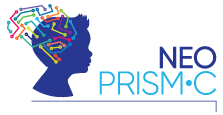If medicine is a team game, patients should play too: a psychological perspective on patient engagement
G. Graffigna, Università Cattolica del Sacro Cuore, Italy
Healthcare professionals along the whole care journey must collaborate and coordinate their efforts for healthcare systems to function effectively. In other words, medicine requires teamwork to be successful. If we agree on this principle, then –adopting a sports metaphor –the patient too should be considered a player in the team!
The concept of patient engagement recognizes this, and it is an important ingredient for enhancing the effectiveness and sustainability of healthcare.
What is patient engagement?
Patient engagement views people as more than merely “recipients of care” and places them as crucial actors in planning and delivering healthcare services. It is a process by which people become actively and genuinely involved in defining relevant issues in their care. This includes making decisions about factors that affect their lives, designing and implementing policies, planning, developing and delivering services, and taking action to achieve behavioral and lifestyle changes. Patients’ psychological attitudes, motivations, feelings and readiness to engage in healthcare are crucially important to this process.
In 2017 our group proposed and scientifically validated a psycho-social framework to diagnose and promote patient engagement: the Patient Health Engagement Model. This novel evidence-based psychological theory aims to explain how patient engagement develops from the patients’ perspective. The Patient Health Engagement model describes patient engagement as a dynamic and evolving process, through which people can recover their abilities for personal projects and goal-directedness — even if living with a disease.
The model emphasizes patients’ personal choice to change their attitude towards the healthcare system, from passive recipient, to partner and co-pilot of the healthcare experience. This change in the personal role identity is a function of a dynamic evolution of patients’ adaptation and resilience to their healthcare condition. Full patient engagement results from a series of emotional and motivational efforts to reframe his/her health condition and the patient’s role and identity. This is crucial to sustain patients’ adherence to treatment and self-management and to successfully maintain change in behaviors and lifestyles.
The Patient Health Engagement model contains four phases, and healthcare professionals can support patient engagement within each phase.
- Phase 1: In this phase, patients experience feelings of psychological vulnerability connected to a critical event, usually a diagnosis. Healthcare practitioners should provide emotional support to help patients adjust to their new health condition. The focus should be on helping patients develop a new sense of agency and control regarding their illness. In other words, patients can be supported to help them feel that their actions can lead to effective health management.
- Phase 2: In this phase, patients have an initial awareness of their health condition, but still have only superficial knowledge about how to manage it effectively. In this phase, it is common for patients to dropout of the care process. In this position, health care providers are crucial points of reference for patients. They must also support patients in managing their illnesses and coping with illness, thus preventing care dropouts.
- Phase 3: By this phase, patients have developed a good acceptance of their disease and have overcome the major psychological distresses connected to disease onset. Healthcare professionals can support patients in this phase by helping them to maintain adaptive health behaviors even in stressful or atypical situations.
- Phase 4: Eudaimonic project. In this final phase, patients have become fully aware of their disease and its implications. They have changed lifestyle habits in line with therapeutic requirements, and they are becoming active agents in achieving positive and satisfying quality of life, despite living with a chronic condition. At this stage, health care practitioners are thus considered as reliable allies, and patients should be supported in seeing themselves as active members of the care team.
The transition from a passive approach to regular and effective active behaviors to manage health is based on a complex process of meaning-making and self-identity elaboration. The subjective, and sometimes irrational, perception that individuals have about themselves, and the unique lenses through which individuals evaluate their quality of life are – in our opinion – fundamental to making the process of engagement possible. Healthcare professionals can thereby incorporate these insights into their own real-life health engagement models.
The proposed Patient Health Engagement model has been shown to predict patients’ levels of adherence to medical prescriptions and patients’ empowerment in self-management. Adopting a psycho-social lens to define and measure patient engagement promises to greatly enhance our understanding of how people decide to change their role in the healthcare journey in favor of better engagement in their healthcare.
To sum up, individuals’ sense of emotional control of their disease and care plays an essential role in how well they can cope with their illness. The better these emotions and roles are understood, the better the possibility for patients to become effectively engaged in their healthcare. Healthcare professionals have a key role to play in each of the transitions, from diagnosis to becoming a fully informed and engaged individual actively involved in their own healthcare.
Practical recommendations
- Assess patient engagement: the Patient Health Engagement Scale can help in systematically measuring engagement across clinical settings and timeframes, in order to orient personalized strategies and interventions to promote it
- Build trust: Use personalized communication (i.e., patient-doctor communication, public communication, social marketing communication) that is aligned with the measured levels of patient engagement.
- Open healthcare culture: Medical settings and education should look to implement training programs to provide healthcare professionals with the necessary knowledge and communication and relational skills to promote patient engagement.
- Promote patient enthusiasm: Help patients to look on the bright side. Encouraging an optimistic attitude that looks for the positives can help people filter out some of the bad or discouraging news that might impact on motivation to engage.
